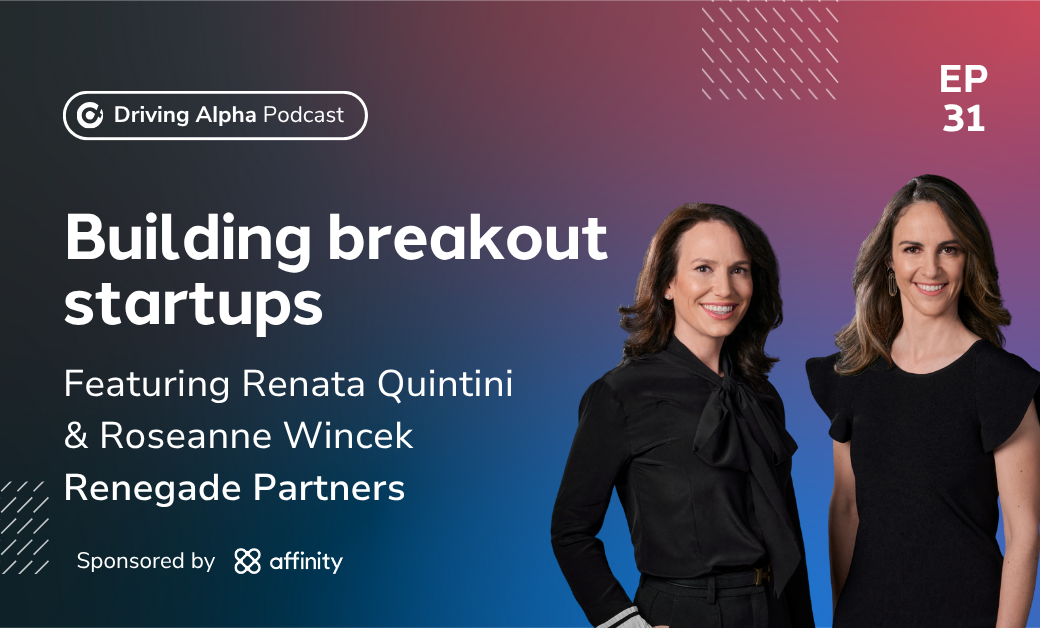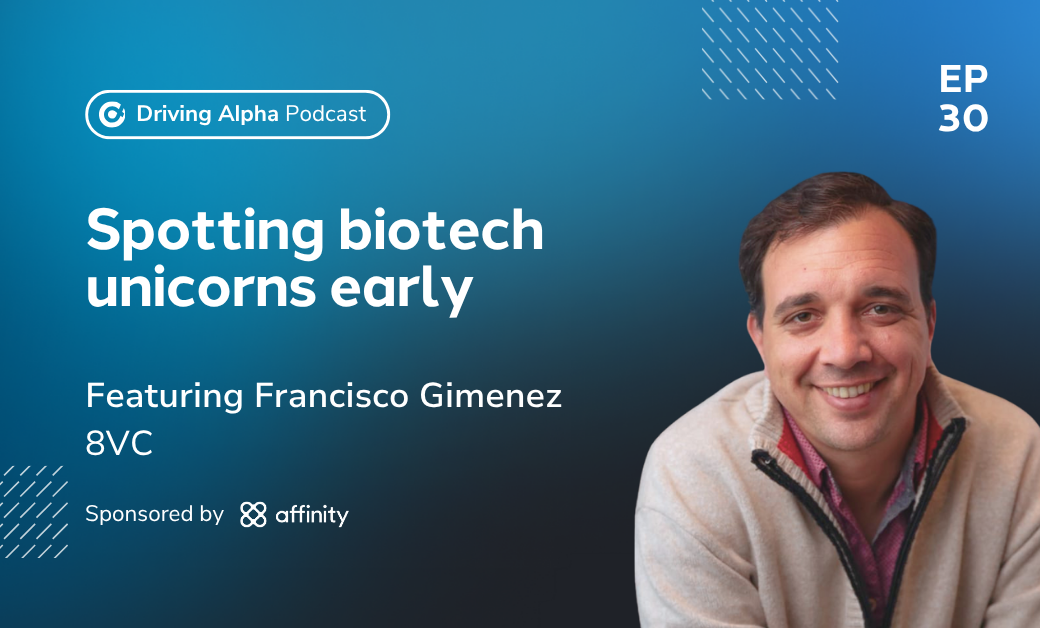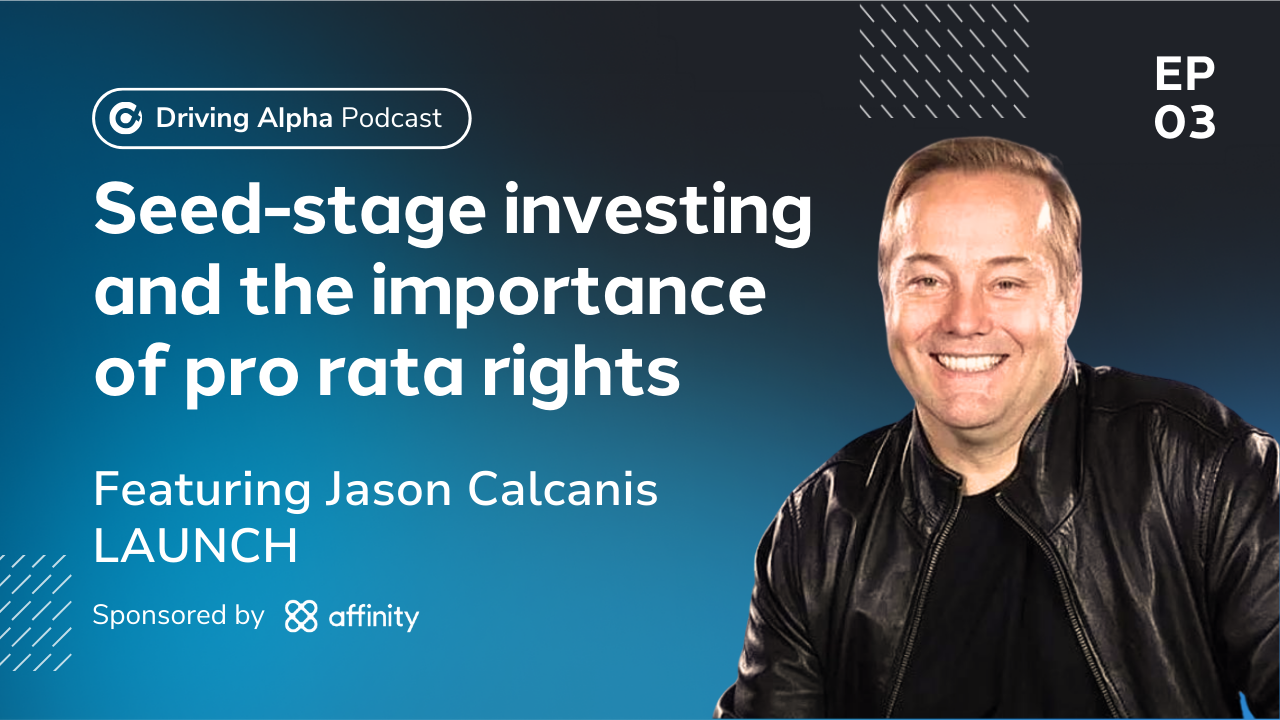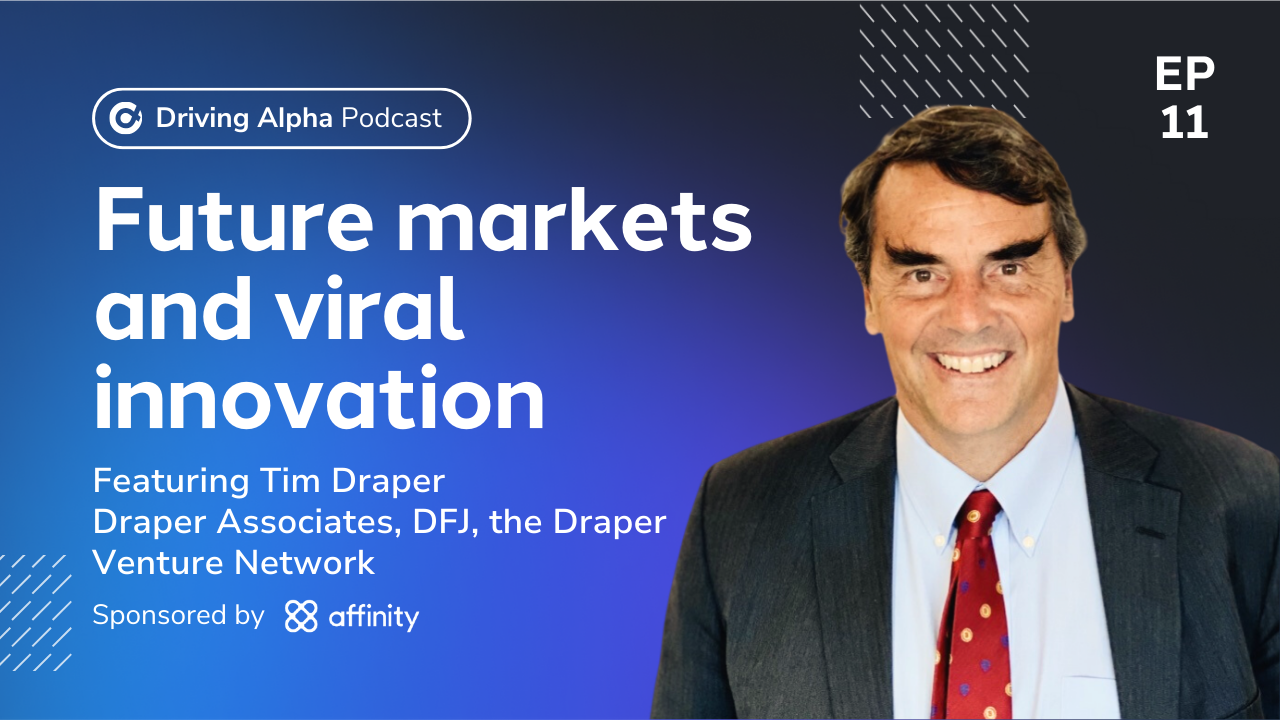Zoe: Hello everyone, and welcome to the Driving Alpha podcast, where we interview top GPs to talk about how they drive alpha for their portfolio companies, their LPs, and the rest of the entrepreneurial ecosystem. I am thrilled today to interview two outstanding investors. We have Renata Quintini and Roseanne Wincek, the co-founders and managing partners of Renegade Partners.
So Renata launched her investment career managing assets at Stanford’s endowment before becoming a partner at Felicis Ventures and later Lux Capital. Roseanne started out in venture at Canaan Partners and went on to serve as a partner at IVP. In 2020, they teamed up to launch Renegade Partners, a San Francisco-based firm that backs transformative startups at the Series A stage. Their approach goes beyond capital—they work hands-on with their founders to help navigate the pivotal stages of growth. Some of their notable investments include Ansa, Airspace Intelligence, and Coda. Thank you so much for being on the podcast with me.
Renata: Thrilled to be here, Zoe. Thanks for having us.
Zoe: So Renata, I want to start with you. Can you please share a little bit more about your professional journey, starting with your time at the endowment and then joining newer funds to your role at Renegade Partners?
Renata: Yeah. My career is a bunch of lines that at some point connect, but the thread is always luck and being at the right place at the right time. I’m actually a lawyer by training. I grew up in Brazil and practiced law. Venture capitalists used to be my clients. I got to see a little bit of how the job worked. It was the early 2000s, and that drove me to come to the U.S.—Silicon Valley in particular—to get closer to how law and tech were evolving.
When I got here, I said, “Wow, I want to be a VC,” but being a female Brazilian lawyer in the early 2000s, I was very much out of central casting. While I was doing my Stanford MBA, I realized Stanford’s endowment did venture, and I found a way to get in there. Venture was transforming—micro VCs were just getting started and Stanford didn’t have exposure to that segment, so I raised my hand and asked if I could spend time understanding it.
What I learned was it had become 10x cheaper to start a company, which changed product-market fit for founders. This lesson—backing prior operators who helped founders reach product or revenue faster—was critical in forming our thesis at Renegade.
Then I joined Felicis Ventures very early. It was just me, an EA, and we built the firm and brand from scratch. A big lesson from that experience: the most important job in venture is finding and backing iconic companies. Ownership percentage is a byproduct of backing amazing people doing ground-changing things.
Later I joined Lux Capital because I was fascinated by company building in frontier spaces. Starting Renegade was not something I was actively thinking about—it came down to meeting the right person at the right time. Roseanne and I had dinner and were completing each other’s sentences about things that weren’t consensus at the time but now seem obvious. That was the spark.
Zoe: Thank you for that overview. You mentioned that your journey has been about the right place, right time. How do you know when it’s the moment to make a big jump?
Renata: It’s about taking risks—it was never obvious. Leaving my country, leaving my profession, and joining an emerging firm—these weren’t safe bets. But I always felt like I could bring something to the table and grow at the same time. It was never one-directional. That give-and-take helped my gut feel comfortable taking the leap, even when it came to starting Renegade.
Roseanne: I think that’s such a good point. In hindsight, it might all make sense, but it’s really not linear. I think what people often get wrong is thinking they need to follow a specific path. But the real question is, what do you actually want to be doing? You’re spending your most valuable resource—your time. You’re never going to be as good at something as someone who truly loves it.
I started out in a biophysics PhD program, dropped out, and co-founded a company. I didn’t start a unicorn, but I scratched the itch and grew. That’s how I ended up in venture—not as a calculated move but by following my interests.
Zoe: I love that. So much of venture is serendipity. Roseanne, can you walk us through your own path?
Roseanne: Yeah, absolutely. I grew up in Cleveland, went to Cal for undergrad, started a PhD at UCSF in biophysics, but realized the lab life wasn’t for me. I co-founded a startup in the Facebook App days, which went under, then joined a bioinformatics company in product. That’s where I learned about venture capital. I didn’t know it was a job people actually had. One of our board members asked if I’d thought about it. I went home, read everything I could, and thought, “This is my dream job.” I applied to business school and went to the GSB, then joined Canaan and later IVP.
At IVP, I got curious about growth investing and enjoyed the analytical side, but my heart was in early stage. I started to feel like I had a lot of ideas for how to build a firm—how we compensate people, invest in tech, structure teams—but I was at a large, legacy firm that couldn’t move quickly. When Renata and I started brainstorming, we couldn’t stop. I didn’t plan to start a firm, but once we started talking, it felt inevitable.
Zoe: Let’s talk about the founding of Renegade Partners. Starting a fund is always risky, but it wasn’t even trendy when you launched. What was that like?
Roseanne: It was weird! LPs would ask if we got fired. People weren’t spinning out of firms at that time. We spent so much time traveling in 2019, pitching in person—Zoom wasn’t a thing yet. We had to educate the market on our vision. It wasn’t just “look at my track record”—we had strong views on the kind of companies we wanted to back and how we’d work with them.
Renata: Exactly. We focused on Series A companies at that inflection point—product-market fit to building a scalable company. We call it the “teenage years” of a startup. It’s when talent, team structure, and execution matter most. That’s where we wanted to add value. But we had to package it clearly—just saying “Series A” helped LPs understand.
We also had a strong belief in decision science, which we’ve embedded into our investment process from day one. That was another unusual thing at the time, and it took some LPs longer to come around.
Zoe: Are you Zoom or in-person people now?
Roseanne: Both! Our new office in Jackson Square is beautiful, and I love the energy of being together. But nothing beats the efficiency of Zoom, especially for early screening calls.
Renata: Exactly—use Zoom to weed out mismatches early. But once there’s interest, in-person makes a huge difference.
Zoe: You’re currently deploying Fund II. How did fundraising differ between Fund I and Fund II?
Renata: We raise funds on a three-year cycle. Fund I closed on March 13, 2020—literally the day the world shut down. Fund II launched right before the bank collapses and downturn of 2022. So we joke that something always breaks when we fundraise.
Roseanne: Fund II fundraising in 2022 was brutal. Everyone was shell-shocked. But we slowed down deployment and didn’t start writing checks until 2023. You just have to push through it.
Zoe: Let’s talk about how you support portfolio companies. What does being hands-on really look like?
Renata: We focus deeply on talent. Our operating partner, Susan, is amazing—she’s scaled teams at Uber, eBay, and Zoom Pizza. She helps founders figure out not just who to hire, but how to think about team structure, process, and leadership. Roseanne and I go deep on go-to-market, pricing, and business model strategy. It’s not one-size-fits-all.
Roseanne: Every company is different. You have to read the room. We’re not there to repeat what other board members are saying—we pick our spots and provide the help that’s missing.
Zoe: What’s your view on board dynamics?
Roseanne: It really varies. Some boards are awesome; others are toxic. A good board won’t make your company—but a bad one can destroy it. As investors, we have to call out bad behavior and support founders in managing tough rooms.
Zoe: I’m fascinated by your use of decision science. Can you walk us through that?
Renata: We built scorecards with defined criteria for what a Renegade deal looks like. Each score has a rationale, and we track areas of disagreement to guide diligence. Over time, it gives us data to improve our decisions. It makes us faster and more objective.
Zoe: What trends are you watching in venture?
Renata: We predicted the rise of big platforms and boutique firms years ago—and now it’s real. What surprises me is how big and fast the platforms have become. Also, AI is changing everything—cost structures, team design, even what skills matter most.
Roseanne: Yes! It’s never been easier to write code or build a product. The question now is: what’s durable? What creates real customer value? We’re seeing amazing velocity, but also high churn. We’re leaning into infra, workflows, and use cases with lasting impact.
Renata: We spend a lot more time talking to customers. Founders may not always have the clearest view of pricing or value delivery—so we dig in. We’re looking for real usage, a real budget, and a clear reason to exist.
Zoe: This was an incredible conversation. Any final thoughts or ways listeners can connect?
Renata: Yes! Twitter, LinkedIn, or email: renata@renegadepartners.com and rose@renegadepartners.com. We love meeting great founders.
Roseanne: Thank you, Zoe—this was so much fun.
Zoe: Thanks for tuning in, everyone!






